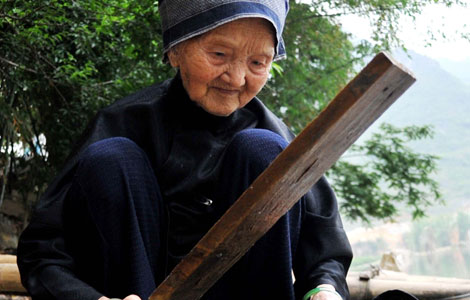Lessons in young love
Updated: 2013-09-07 00:45
By Raymond Zhou (China Daily)
|
|||||||||||
In a conservative culture, it takes a shift in mindset for a college to encourage students to date. But to educate a young population on the art of love, further action must be taken.
Young Chinese can get married while attending college — only on the condition that he has reached 22 years of age and she 20, which is China's minimum age for marriage. But college students are generally discouraged from dating — on the assumption that dating will disrupt their learning. That makes Ningbo Institute of Technology unique: It lists among its general guidelines that each student should date at least once no matter if it results in anything like a long-term relationship, or not.
Dating has always been widespread on Chinese campuses whether or not it is tolerated. Even sex is by no means uncommon. During the late 1970s and early 1980s when I was in college, sex would get you expelled if the school authority got wind of it. Nowadays I guess schools do not go out of their way to crack down on it and would take punitive action only if they are forced to. Overall, the trend is clearly toward higher tolerance.
 |
|
Pang Li/China Daily |
But to encourage students to engage in romantic rendezvous is a whole new thing.
To understand the fuss about young adults being attracted to each other, a little cultural background is needed. In China, many parents take an either-or attitude to their children's academic study vis-a-vis other pursuits. For the older generation, every minute not spent cracking a book is a minute wasted. They were fed ancient tales to reinforce this, like the one about a young scholar who tied his long hair to a high beam and placed needles on the back of his chair so that whenever he dozed off from studying he would automatically have his hair pulled and his behind pricked. They feed this tale to their kids as something of a role model.
For me, this is not an exemplar of hard work in academia. If the guy could design such an elaborate device to keep himself awake, he sounds suspiciously like a masochist. Someone that sleepy and who is not into masochism should not keep on reading. He should have a good sleep, period.
Now Chinese parents are not entirely at fault for taking an extreme view of what's good for a student. Young people are tempted by all kinds of things and many of them do not have good intuition about priorities. So, if one is addicted to online games, for example, he may well spend an inordinate amount of time on this — until his parents pull him back, often with equally excessive means such as grounding the kid or depriving him of all leisure activities. In college, someone in love may be carried away to the point that everything else, including academic work, will simply fade away from the priority list.
However, prioritizing can be learned. A college life doesn't have to be that of either bookworm or a social butterfly. It can and should incorporate courses and hobbies and social contacts of every kind. While obsessive learning has indeed produced a small crop of virtuosos — piano prodigy Lang Lang comes to mind — it has also created an imbalance that is hazardous to the growth of a young mind. Even success stories like that of Lang come at a heavy cost. He thought of killing himself when he was pushed too hard by his father.
Today's Top News
President calls for worldwide free trade
Global leaders praise speech
Supervision raised on rail building
Xi, Obama discuss Asia-Pacific
Open up private market, Li says
NASA rocket to study moon's fragile atmosphere
Internet guru diagnosed with cancer
Web firms sued for spreading rumors
Hot Topics
Lunar probe , China growth forecasts, Emission rules get tougher, China seen through 'colored lens', International board,
Editor's Picks

|

|

|

|

|

|





